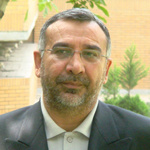In Afghanistan, History Repeats Itself

According to the media, the Peace Council, consisting of 68 political and tribal figures—some such as Burhanuddin Rabbani, now officially the chairman of the council—is responsible with conducting the task of holding talks with Taliban-led insurgents. Nevertheless, to date, despite the claims of some governmental sources and the Western news media, no Taliban source has confirmed any backstage talks about holding negotiations, while the Taliban is usually quite outspoken on such occasions.
With the unverified reports that remain not responded to by Taliban leaders, the question is: who is the Peace Council going to negotiate with? Talk to a party that remains resistant to the demands? Or is this another attempt to appease Western public opinion?
Western countries, trapped in Afghanistan, assume that such initiatives can alleviate their challenges in the country. However, the conjunction of the first meeting of the Peace Council with the first terrorist attack in the city of Takhar in northern Afghanistan which killed Kunduz governor Mohammad Omar, is as significant as it could be for an Afghan politician. One can add to this the attacks on NATO supplies at Pakistan’s border to come to the conclusion that the Taliban is just as unwilling to negotiate as Karzai’s government is eager to.
Another question: what is the legal basis of forming the Peace Council? Observers refer to the Musa Qaleh Truce with the Taliban (by British troops), the London Conference, and the Kabul Conference as the preludes to formation of the Peace Council. But what is the position of Afghanistan’s Constitution, Parliament and Senate in this process? Many are against the plan since it bypasses the legal mechanisms to reach a stable situation in Afghanistan.
The next question that comes to mind: what is the goal of these talks? Is Karzai going to cede power to the Taliban or going to give them a share of power? It is clear that the Taliban is a totalitarian movement with its unique doctrine aspiring to establish an Islamic Emirate. In the Taliban’s doctrine, there is no room for sharing power with other groups. No interaction is advocated, and submission is the only option for the others.
Thus, it seems that Peace Council’s function will be merely nominal. The only purpose one can think of for the council is to please the Western citizens whose taxes are used to equip their armies in an apparently interminable battle in Afghanistan. This is the tenth year US troops are roaming Afghan territory to root out terrorism. But plans based on unrealistic assumptions are doomed to fail. So let’s not expect too much from the Peace Council.
* Mohammad Ebrahim Taherian is Iran’s former ambassador to Afghanistan.

